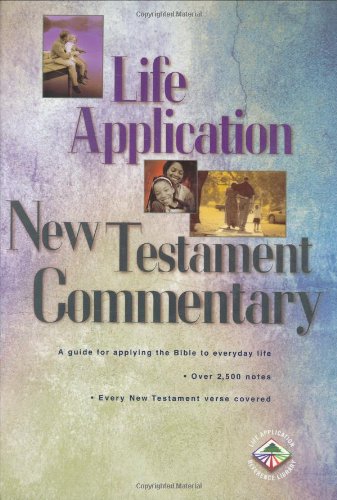There were several classes at my college that were known to be a lot of work. Church History and Restoration Movement History were known for heavy reading, both with Terry Chaney or Mark Sloneker. Grammar was expected to be difficult (and hilarious, so long as you had Jackina Stark). Life of Christ was sure to have a lot of memorization, whether you took the class with Mark Moore or Brian Brubaker.
And Principles of Interpretation was all about the project.
At the beginning of the semester, you chose a passage of scripture, and through the semester you would apply the various methods of interpretation to the passage, creating the pieces of your project. This was submitted in a half-inch three-ring binder, not bound with staple or paperclip.
My passage was from 2 Corinthians.
"Since, then, we know what it is to fear the Lord, we try to persuade men. What we are is plain to God, and I hope it is also plain to your conscience. We are not trying to commend ourselves to you again, but are giving you an opportunity to take pride in us, so that you can answer those who take pride in what is seen rather than in what is in the heart. If we are out of our mind, it is for the sake of God; if we are in our right mind, it is for you. For Christ's love compels us, because we are convinced that one died for all, and therefore all died. And he did for all, that those who live should no longer live for themselves but for him who died for them and was raised again. So from now on we regard no one from a worldly point of view. Though we once regarded Christ in this way, we do so no longer. Therefore, if anyone is in Christ, he is a new creation; the old has gone, the new has come! All this is from God, who reconciled us to himself through Christ and gave us the ministry of reconciliation: that God was reconciling the world to himself in Christ, not counting men's sins against them. And he has committed to us the message of reconciliation. We are therefore Christ's ambassadors, as though God were making his appeal through us. We implore you on Christ's behalf. Be reconciled to God. God made him who had no sin to be sin for us, so that in him we might become the righteousness of God." 2 Corinthians 5:11-21 (NIV-1984)
I love this passage, and I had the opportunity to become very familiar with it. I researched the meaning of the original Greek words. I studied how the grammatical construction nuanced those words. I read about the historical background of Paul, the book of Corinthians, and what the role of an ambassador was in the first century.
And throughout the class, I learned something else. Every person comes to the Bible, and to life in general, with certain presuppositions. Presuppositions are beliefs that we hold onto ahead of time that color how we read scripture, interact with people, and approach life. If you misunderstand the meaning of reconciliation, you're going to misunderstand this whole passage. If you think you understand the role of an ambassador but don't realize the high authority an ambassador had in the first century, you'll miss what Paul is saying about God's people.
I love that the Bible is so easy to read that most anyone can read it and understand what's being said, but I also realize that we all come to the Bible with different life experiences, belief systems, and expectations. All of these affect how we understand the word of God. THAT is why digging deeper into the Bible than mere reading is important.
If you realize that you've been missing out on much of what the Bible has to say, consider getting a study Bible such as this one:
Search
My Favorite Posts
- 5 Reasons Why You Should Attend a Different Church Next Week
- 5 Ways to Read the Bible: Bible Reading Plans
- Available Power
- Baptism
- DiVine Lessons: I Am the True Vine
- Going to a Megachurch
- I Am the Resurrection and the Life
- Learning to Pray
- Should You Agree with Everything Your Church Teaches?
- The Church is not Dead
- The Inclusive and Exclusive Gospel
- The Minimalist's Guide to Bible Study Tools
- What To Do About Worry
My Blog List
-
A Prayer for the New Year3 weeks ago
-
Pivotal Moments1 year ago
-
WBC经典赛确认4名华裔战力 40岁张宝树依旧出征3 years ago
-
-
MY NEW BLOG IS UP NOW!8 years ago
-
-
夜中の10時から深夜2時までの4時間はお肌にとってのゴールデンタイム8 years ago
-
What about the Babies?10 years ago
-
-
The Dancing Master12 years ago
-
My husband and me

Powered by Blogger.







One of the presuppositions that I came into college with was that the only possible way the return of Jesus would happen was according to the Left Behind books. I was shocked when I found out there were all kinds of theories as to how it will happen. As I learned about the other options, I realized that it is nearly impossible to know exactly how everything will happen, but we know how it will turn out at the end, and I'm okay with that.
ReplyDelete